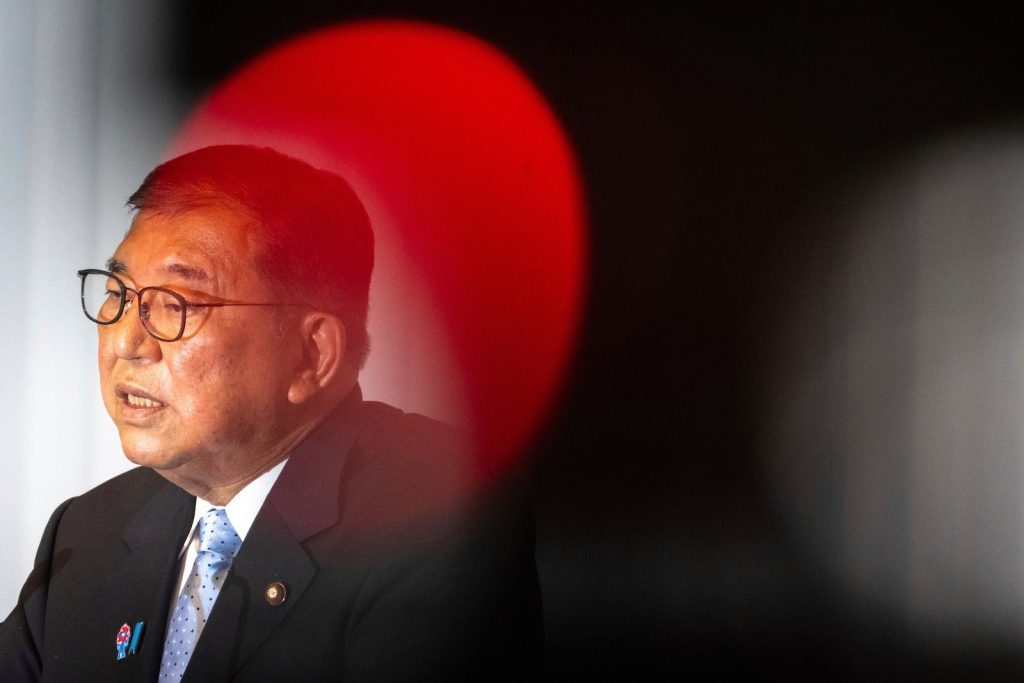TOKYO (Realist English). Public support for Japanese Prime Minister Shigeru Ishiba’s Cabinet has dropped to 22.9%, its lowest level since he took office in October 2024, according to a new Kyodo News poll released Tuesday. The steep decline follows a major electoral setback for the ruling Liberal Democratic Party (LDP) and its coalition partner Komeito, who lost their majority in both houses of parliament in Sunday’s House of Councillors election.
The Cabinet’s approval rating fell 9.6 points since June, while the disapproval rate surged 14.9 points to 65.8%. Support for the LDP dropped to 20.7%, the lowest figure for the party since 2001 under Junichiro Koizumi — though direct comparisons are complicated by differing polling methods.
Despite rising calls within the LDP for Ishiba to resign, the public remains divided: 51.6% of respondents said he should step down, while 45.8% believe he should stay.
Ishiba has vowed to remain in office, citing the risk of political paralysis amid ongoing economic hardship and critical tariff negotiations with the United States ahead of an August 1 deadline. “Avoiding a power vacuum at this time is essential,” he told reporters.
Shift in public sentiment
Sunday’s vote marked the first time since 1994 that Japan’s ruling parties have failed to control both chambers of the National Diet, signaling potential legislative deadlock. The result has emboldened opposition forces, especially newer populist movements.
Asked about the future of national leadership, the largest group of respondents (36.2%) said Japan needs a “new framework through political realignment,” while 28.0% preferred closer cooperation between opposition groups and the ruling coalition.
In a multiple-choice question on potential partners for the LDP-Komeito alliance, 35.1% favored the Democratic Party for the People (DPP), followed by 21.9% for the Constitutional Democratic Party of Japan (CDPJ) and 20.4% for the far-right Sanseito party, which gained momentum through YouTube campaigns and nationalist rhetoric. Sanseito surged to 11.8% in party support, up from 3.7% in June.
Immigration, inflation drive voter priorities
Policies on foreigners, immigration, and property ownership emerged as key campaign themes, with 65.6% of respondents supporting stricter regulation. Just 4.4% called for easing controls. Still, 56% of voters said such policies did not influence their vote, while 42.3% said they did.
Rising prices were the top concern for 32.2% of voters, followed by 18.7% who cited social security, and 11.4% who focused on employment and economic conditions.
Social media played a growing, though limited, role in shaping voter opinion: 34.9% said it influenced their choices, while 64% said it did not.
Fragmented political landscape
The survey shows rising volatility in party preferences. Support for the DPP rose to 15.1%, overtaking the Japan Innovation Party (5.2%), while the CDPJ gained slightly to 10.8%. Notably, the share of politically unaffiliated voters dropped to 12.3%, down from 21.1% in June — suggesting a shift toward smaller or emerging parties.
The nationwide telephone poll was conducted on Monday and Tuesday, involving 516 randomly selected households and 3,217 mobile numbers. In total, 1,049 responses were collected.
